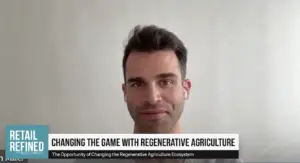As Buyers Embrace Organic Foods, Producers Can Learn from Millennia-Old Methods for Operating a Sustainable Business
As climate concerns continue to rise, customers are relying more and more on sustainable, organic products. According to a report out of the WWF, searches for sustainable goods rose by 71% between 2016 and 2021 in high-income countries like the United States, Germany and Canada, but also among developing economies like Ecuador and Indonesia. Another survey from Nielsen IQ found that consumers were willing to pay extra for organic, natural goods. So, this much has been made clear: The importance of operating a sustainable business can no longer be avoided or, in the worst cases, undermined.
Today’s buyers are driven by concerns for the environment — and their own health; they want to purchase organic, plant-based goods. In fact, sales of organic food products exceeded a whopping $57 billion between 2020 and 2021. By definition, this meant manufacturers took care not to produce food using harmful products like synthetic fertilizers and pesticides.
Denis Kaser, the International Head of Marketing at Le Gruyère AOP, which recently won first place for its artisanal cheese at the World Cheese Awards in Wales, tells us why operating a sustainable business is important for both the consumer and the environment, and why the best legacy practices die hard for a reason.
Denis’ Thoughts:
“Sustainability is nothing new for us. Switzerland, with Le Gruyère AOP, is a country of green pastures. We like to go there for walks and our cows call it home. In order to produce Le Gruyère AOP in an earth-friendly practice, since 1115, only raw milk [has been] used. It’s very vital and there is no silage or animal feed used, which made it durable. Our cows move freely, that improves their life. Feed is produced directly on the farm. This reduces transportation and CO2 emissions. Responsible production of Le Gruyère AOP goes hand in hand, of course, with respecting consumer health, too, as such, Le Gruyère AOP cheesemakers are not using any additives, preservatives, and flavor enhancers. We’re proud to put the herd first in our daily human work. We feed our cows with high quality foods that come directly from the ground and maintain production standards that allow us to feel good about [what we are] sharing with our buyers, consumer, and the global community.”







